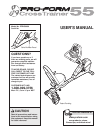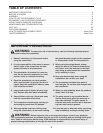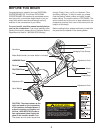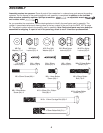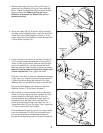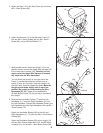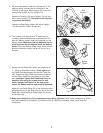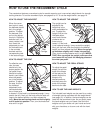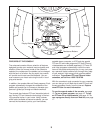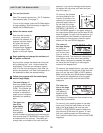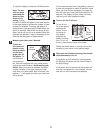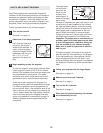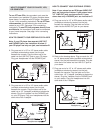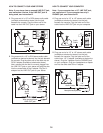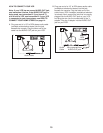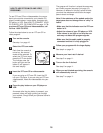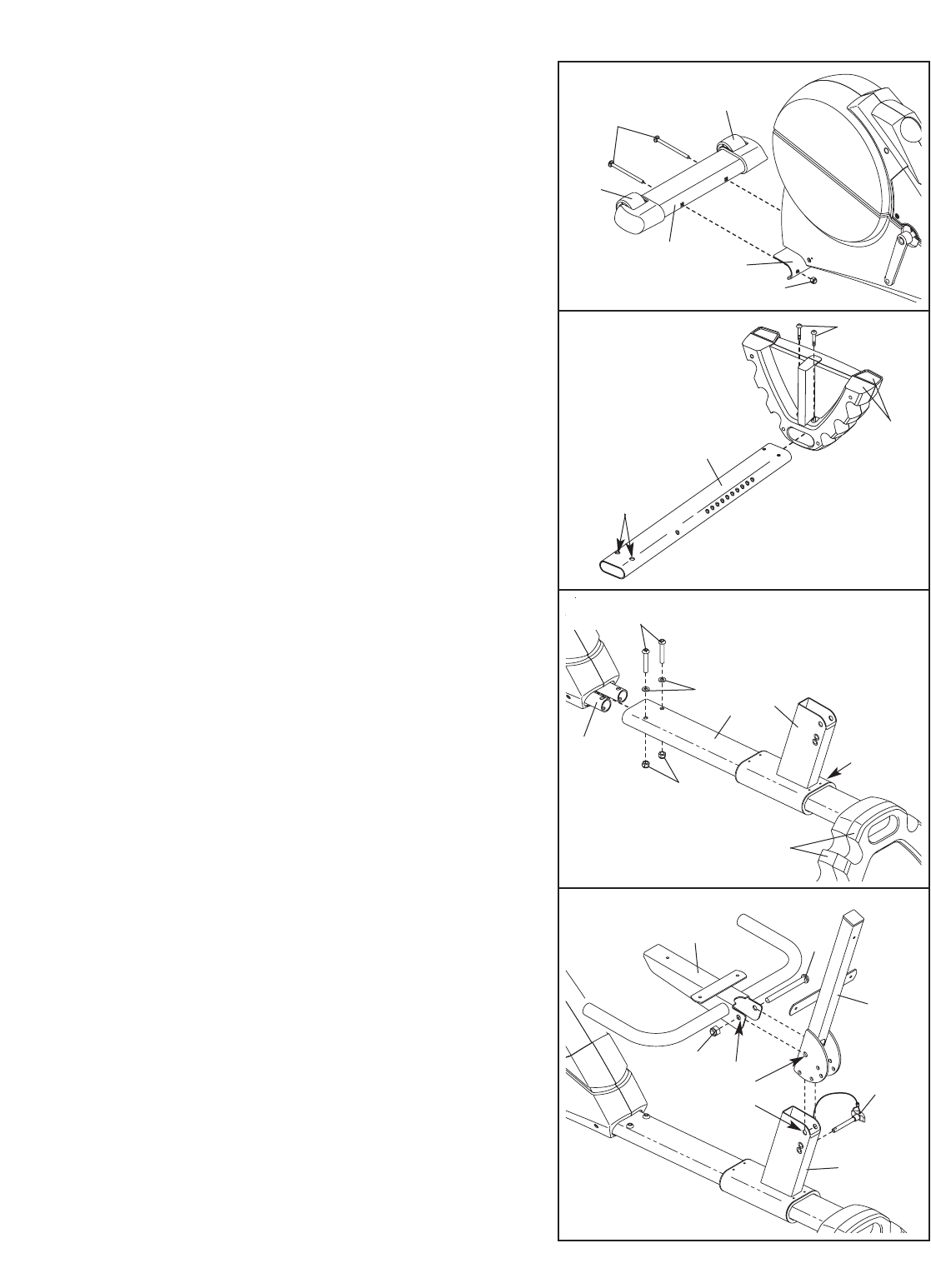
5
1. While another person lifts the front of the Frame (1),
attach the Front Stabilizer (2) to the Frame with two
M10 x 112mm Carriage Bolts (65) and two M10 Black
Nylon Locknuts (63). Make sure that the Front
Stabilizer is turned so the Wheels (30) are not
touching the floor.
2
63
30
30
65
1
1
2. Orient the Frame Rail (3) as shown, with the hexago-
nal holes in the indicated position. Insert the end of the
Frame Rail into the Rear Stabilizer Covers (7, 8) as
shown. Attach the Rear Stabilizer Covers with two M10
x 45mm Button Screws (74).
3
3
7, 8
7, 8
74
3. Locate the Knob (not shown) on the Seat Carriage (4).
Turn the Knob counterclockwise two or three turns to
loosen it. Next, pull the Knob, slide the Seat Carriage
onto the Frame Rail (3), and then release the Knob.
Make sure that the Seat Carriage is oriented as shown.
Move the Seat Carriage back and forth slightly until
it locks into position. Then, tighten the Knob.
Slide the Frame Rail (3) onto the indicated round tubes
on the Frame (1). Attach the Frame Rail with two M10
x 52mm Zinc Button Bolts (68), two M10 Zinc Split
Washers (85), and two M10 Zinc Nylon Locknuts (66).
Set the six Hand Weights (not shown) on the Rear
Stabilizer Covers (7, 8) as shown on page 3.
4. With the help of a second person, slide the Backrest
Frame (5) onto the top of the Seat Carriage (4). Next,
slide the bracket on the Seat Frame (6) over the
rounded brackets on the Backrest Frame. Align the
indicated holes in the Seat Frame, the Backrest
Frame, and the Seat Carriage, and insert the 1/2” x
70mm Button Bolt (51) into the holes. Then, tighten the
1/2” Nylon Locknut (52) onto the Bolt.
Pivot the Backrest Frame (5) up until it is nearly vertical.
Insert the Adjustment Pin (29) into the lowest hole in
the rounded brackets on the Backrest Frame and
through the corresponding hole in the Seat Carriage (4).
6
5
51
4
29
4
2
68
85
Align
these
holes
52
3
1
66
Knob
Hexagonal
Holes
4



